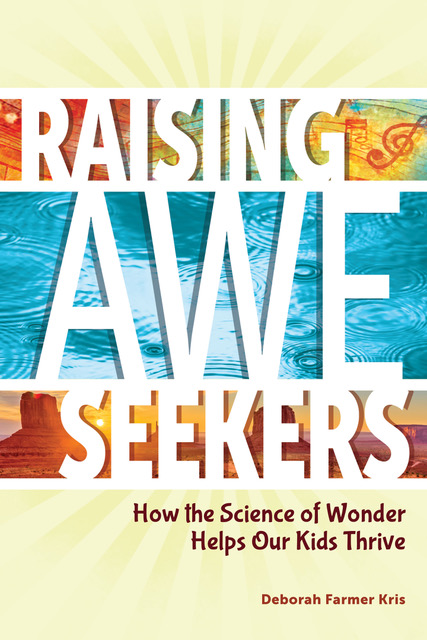 Young children practice cognitive housing all time. Think of a toddler whose only experience with dogs is the little family shih tzu. One day, the child meets the Danes of the neighbor. Wow! The mental concept of the child of “dog” develops quickly to include more forms and sizes.
Young children practice cognitive housing all time. Think of a toddler whose only experience with dogs is the little family shih tzu. One day, the child meets the Danes of the neighbor. Wow! The mental concept of the child of “dog” develops quickly to include more forms and sizes.
Cognitive accommodation is at the heart of a good education: this is what allows students to rely on previous knowledge to revise, develop and deepen their understanding of a concept. As Summer Allen wrote it in the White Paper “The Science of Awe”: “The capacity for fear to cause cognitive housing can also explain why humans have evolved to feel this unique emotion. An emergence can be adaptive because it encourages us to take new information and adjust our mental structures around this information, to help us navigate in our world. ”
Connection of curiosity
“One of my favorite discoveries suggests that AWE could help stimulate curiosity for the world,” said psychologist Craig Anderson. Anderson was part of a team that studied How this emotion influenced adolescents. “The more they felt impressed, the more curiosity they expressed, the better they performed at school,” he said.
Fear is sometimes described as an “emotion of knowledge”. Paul Silvia, professor of psychology at the University of North Carolina, Greensboro, describes the emotions of knowledge as “a family of emotional states that promote learning, exploration and reflection”. These emotions include surprise, interest, confusion and fear and result from experiences that are “unexpected, complicated and mentally difficult, and they motivate learning in its broader sense”.
According to Silvia, AWE is a powerful educational tool because it motivates people to explore things that extend their understanding of the world. He wrote: “When people see beautiful and striking color images of supernovas, black holes and planetary nebulas, they generally report feelings of fear and wonder. These feelings then motivate them to learn what they see and their scientific importance. ”
When you wonder, you learn
None of this research would surprise Fred Rogers, for whom Wonder was pedagogy. He knew that curiosity is what begins the brain of children for learning. He also had this incredible ability to communicate his own wonder through the screen – in particular his fascination for his young viewers.
I contacted Gregg Behr and Ryan Rydzewski, co-authors of When you wonder, you learn: the lasting lessons of Mr. Rogers to raise creative, curious and attentive childrenTo find out more about what they learned by studying Rogers’ work. They said to me:
When Fred Rogers sang the words, When you wonder, you learnHe was not joking. In a very real sense, he was right. We know modern science only when we are in a state of wonder, something lights up in the brain. We are starting to absorb all kinds of information. And the more curiosity we feel, the more likely we are to keep this information. . . This is why some scientists think that curiosity can be just as important as intelligence with regard to the success of children at school.
According to researchers, curiosity has a “fundamental impact on learning and memory”. When children are curious, they are more motivated to learn and more able to keep information. Think of a four -year -old child who knows the name of each dinosaur, a ten -year -old child who can recite and explain the G forces of dozens of roller coaster, or a fourteen year old who memorized each Hamilton lyrical. No teacher affected this work. The four -year -old child went to a museum of natural history and was fascinated by the huge skeletons. The ten -year -old man set up his first roller coaster and became fascinated by the feeling and the physics of all this. The fourteen-year-old man had never heard a musical or a story, just like this, so they continued to listen. AWE, curiosity, learning, memory.
Here is another fantastic discovery: curiosity has an amplifying effect on other learning. A study from the University of California in Davis, revealed that when the participants were curious about the initial information presented to them, they could then more easily absorb unrelated information. The simple fact of being in a curious state of mind helped the brains of the participants to memorize the material which was less excited. As the main author of the study said, Matthias Gruber, “curiosity can put the brain in a state that allows him to learn and keep all kinds of information, like a vortex that sucks what you are motivated to learn, and also everything around him.”8
These are new teachers and parents can use. Get involved with older children Questions and helping them discover what arouses their curiosity is a concrete way to support their learning in general. The challenge is not to make them fall in love with all Subjects. But what happens if we feed their curiosity with one or two? What if we pay particular attention to what aroused their interest, which inspired their fear and pushed it?
 Deborah Farmer Kris is the author of “Raising Awe-Eekers: how the science of wonder can help our children to prosper”. You can follow its substitution with @risingawesekers or on bluesky at @deborahfarmerkris.
Deborah Farmer Kris is the author of “Raising Awe-Eekers: how the science of wonder can help our children to prosper”. You can follow its substitution with @risingawesekers or on bluesky at @deborahfarmerkris.



